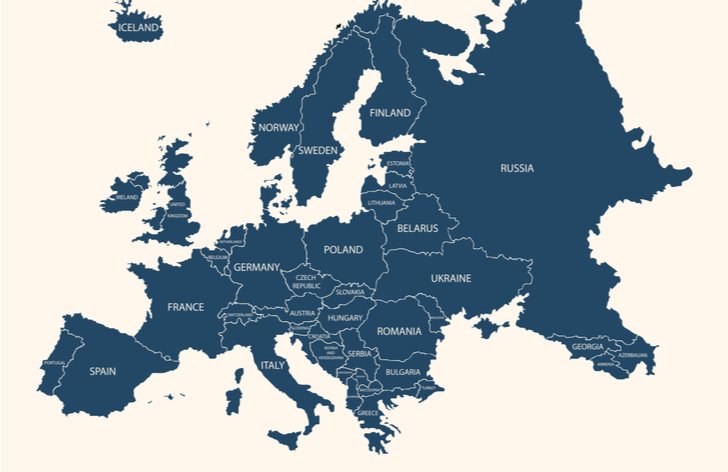April 2 (Reuters) - Following is the full text of the
minutes from the Czech central bank (CNB) governing board's
March 25 monetary policy meeting, released on Friday.
Present at the meeting: Zdenek Tuma (Governor), Mojmir Hampl
(Vice-Governor), Miroslav Singer (Vice-Governor), Pavel Rezabek
(Chief Executive Director), Vladimir Tomsik (Chief Executive
Director), Eva Zamrazilova (Chief Executive Director).
The meeting opened with a presentation of the second
situation report assessing the new information and its effect on
the fulfilment of the risks of the February macroeconomic
forecast. The new situation report assessed the risks in
relation to the forecast overall as being moderately
anti-inflationary. The main downside risk to inflation was a
change in the external outlook, in particular an assumed later
and slower rise in market interest rates in the euro area. As
for the domestic economy, the quarter-on-quarter upswing in GDP
growth assumed in the forecast had materialised in 2009 Q4. In
year-on-year terms, GDP had continued falling, doing so faster
than the forecast had assumed. Turning to the structure of GDP,
quite a sizeable downward revision had been made to household
consumption, although this had been partly offset by upward
revisions to other components of demand. Consumer price
inflation in February had been 0.3 percentage points lower than
forecasted. The deviation of inflation from the forecast had
been driven mainly by a deeper decline in adjusted inflation
excluding fuels.
In the discussion that followed the presentation of the
situation report, the Board agreed that in addition to high
uncertainty regarding future trends, monetary policy
decision-making was encumbered with uncertainty concerning the
interpretation of the statistics on past trends. The historical
statistical indicators may have been deflected by the extreme
growth shocks and might be less reliable than under normal
circumstances. In this context, the revision of the consumer
basket made at the start of 2010 was discussed. This had also
been reflected in (lower-than-forecasted) inflation in February.
It was mentioned that the weights of food and tradable
commodities in the consumer basket had increased at the expense
of nontradables and services, and that this was
counter-intuitive for a converging economy. It was argued that
the change in weights might have been linked with the one-off
supply shocks to world food prices in 2008 and that the strong
exchange rate and the contraction in tourism that year might
have also played a role.
Another major uncertainty also discussed by the Board was
the evolution of wages and related nominal unit wage costs. In
this regard, there was a discrepancy in growth in wage-cost
pressures between the different series (National Accounts versus
the Labour Force Survey). The arguments made in the discussions
of the last two situation reports were repeated, namely that the
high wage growth in late 2009 might have been linked with a
lower sickness rate and with mostly low-wage employees having
been laid off during the crisis. Tax optimisation was forwarded
as an explanation of the high wage growth: payment of some
bonuses for 2009 may have been brought forward to 2009 in
response to the raising of social and health insurance ceilings.
Overall, the Board agreed that wage growth seemed to be a
two-sided risk.
In connection with the revision of the GDP structure, most
of the board members expressed their belief that the revision
was in line with their expectations and that the February
forecast's assumption of a W-shaped economic recovery was thus
unchanged. The Board agreed that the recovery in the Czech
Republic would be driven primarily by exports. In this context,
the Board discussed the external economy, and in particular the
deferral of the rate-raising cycle in the euro area and its
potential implications for the exchange rate of the Czech
koruna. Some of the board members expressed their concern about
whether an excessive appreciation of the koruna might endanger
the aforementioned economic recovery scenario through lower
export growth than assumed in the forecast. By contrast, some of
the board members expressed the concern that if no will to
stabilise the fiscal situation was shown at the transmission
horizon, this might foster depreciation of the koruna or limit
its appreciation. In the fiscal context, mention was made of
Ricardian equivalence concerning the upward effect of fiscal
deficits on the savings rate, which would lead in the
anti-inflationary direction.
In relation to the outlook for slower growth in foreign
short-term rates, the opinion was expressed that foreign
medium-term and long-term rates might be of greater significance
for the Czech economy going forward. Here, differentiation might
occur across the euro area, depending, among other things, on
the member states' fiscal situations. In the discussion of
external developments, some of the board members mentioned the
outlook for prices of oil and other commodities, which might be
indicating that a recovery is already starting in some parts of
the world. It was said that this was the only major upside risk
to inflation.
The Board also spent quite some time discussing the
effectiveness of monetary policy during the crisis. In this
context, the forecast assumption regarding the rate of decline
of the still high risk premium between monetary policy rates and
3M PRIBOR interbank rates was repeatedly discussed. Some of the
board members expressed their doubts about this assumption. Also
mentioned was the issue of whether the potential monetary policy
rate movement might be weakened by an opposite movement of this
premium. In addition, the strength and speed of the transmission
of short-term market rates to client rates on loans to the
private sector, which might also be weakened, was discussed. The
high uncertainty associated with the estimates of this
transmission was also mentioned. In the context of the possible
weakening of the transmission of monetary policy rates and
related risks, some of the board members expressed a preference
for monetary policy stability.
The Board also discussed how the prevailing downside risks
to inflation were affecting the domestic interest rate outlook.
Most of the board members agreed that the assumptions of the
February forecast were essentially materialising and that
despite the existence of anti-inflationary risks interest rates
were close to bottoming out. Their assumed future growth would
be later and slower compared to the current forecast. However,
some of the board members expressed the view that the
aforementioned anti-inflationary risks were so significant that
a downward movement of interest rates could be imagined if they
were to materialise.
At the close of the meeting the Board decided by a majority
vote to leave the two-week repo rate unchanged at 1 percentage.
Four members voted in favour of this decision: Governor Tuma,
Vice-Governor Hampl, Chief Executive Director Rezabek and Chief
Executive Director Zamrazilova. Two members voted for lowering
rates by 0.25 percentage point: Vice-Governor Singer and Chief
Executive Director Tomsik.
(Reporting by Mirka Krufova; editing by John Stonestreet)
www.finance.czZprávy
TEXT-Minutes from Czech c.bank March 25 board meeting
Vstupní pracovnělékařské prohlídky již nejsou povinné pro všechny. Kdo se jim vyhne?
Od 1. června 2025 jsou v účinnosti nová pravidla pro pracovnělékařské vstupní prohlídky. Zaměstnanci zařazení do první kategorie již nemusí povinně…
Mladý může dostat víc než starší. Zajímavosti o výpočtu invalidního důchodu
V Česku jsou vypláceny invalidní důchody prvního, druhého a třetího stupně. Pro přiznání invalidního důchodu musí být splněny zákonné podmínky a…
Průměrný výdělek zaměstnance je věda. Jak se počítá a kdy který použít?
Od průměrného výdělku se odvíjí celá řada nároků zaměstnance vůči zaměstnavateli (např. náhrada mzdy za dovolenou) nebo vůči…
Nejen trvalé krácení. Co všechno ovlivní přiznání předčasného důchodu?
Při odchodu do předčasného důchodu je přiznaný měsíční důchod pochopitelně nižší, krácení závisí na termínu předčasnosti. To však není vše. Jaká…
Den otců je tu. Jaké výhody mohou získat tatínci, tátové a fotři?
Na neděli 15. června připadá Den otců. Není to v našich končinách zatím příliš slavený svátek, jeho popularita však pomalu stoupá. Viditelně…
Aplikace na podnikatelský odpad vydělá městům miliony. Živnostníci ji budou nenávidět
Živnostník neplatí, město tratí. Českým obcím unikají miliony kvůli tomu, že drobní podnikatelé často netuší, že mají zákonnou povinnost platit za…
Pouze každá desátá žena vydělává v Německu více než její partner. Proč?
Do rozpočtu německých domácností přispívají zpravidla více muži než ženy. Německo patří mezi členské země Evropské unie s nejvýraznějšími mzdovými…
Preferovaný potomek vs. opomíjený. Co rozhoduje o výši dědictví?
Pokud rodiče po majetkové a finanční stránce preferovali některé ze svých dětí a dávali mu hodnotné dary a poskytovali…
Kdy musejí penzisté platit daň z příjmu a proč se týká jen někoho
Většina starobních důchodců nemá žádné daňové starosti. Kdy však musí starobní důchodci platit daň z příjmu? Jak se vypočítává daň z příjmů z…
Máslo a vejce jsou dražší než v letech s dvoucifernou inflací, cukr už zlevnil
Stále vás překvapují některé ceny při nákupu běžných potravin? Není divu. Ačkoli dříve nevídané plošné zdražování z nedávných let snad ustalo,…
Poslanecká sněmovna zrychleně schválila snížení důchodů pohlavárům
Poslanecká sněmovna začátkem června hlasovala o novele zákona o organizaci a provádění sociálního zabezpečení, která má…
Na plné uznání zapomeňte. Jak se počítá evidence na Úřadu práce pro důchod?
Měsíční částku starobního důchodu ovlivňuje celý průběh pojištění. Čím vyšší rozhodné příjmy a čím vyšší získaná doba pojištění, tím je měsíční…
Samosběr třešní 2025: kde letos zaplatíte nejméně za kilogram?
Samosběry třešní jsou v plném proudu a pěstitelé napříč Českem otevírají své sady veřejnosti. Cena za kilo se letos pohybuje mezi 50 a…
Jaké příjmy musíte mít na průměrný důchod? A mohou na něj dosáhnout i předčasní důchodci?
Jaké příjmy musíte mít, abyste dosáhli na průměrný starobní důchod v roce 2025? A jaké příjmy musíte mít, abyste jako předčasní důchodci dosáhli na…
Poprali jste se a způsobili někomu zranění? Kdo musí platit zdravotní pojišťovně regresní náhrady
Zdravotní pojišťovny mají právo na úhradu nákladů spojených s čerpáním zdravotní péče, pokud dojde k jejich vynaložení v důsledku protiprávního…
Zvýšení příspěvku na péči neprošlo, ale naděje ještě nezhasla
To, zda se zvýší příspěvek na péči alespoň v prvních stupních závislosti, zatím není jasné. Je však jisté, že to nebude prostřednictvím…
Nárok na vyšší podporu v nezaměstnanosti přijde později. Rozdíl bude v tisících
Společně se změnami v zákoníku práce dojde i ke zvýšení podpory v nezaměstnanosti. O kolik a kdy se to stane?
Všichni platí státu stejně? Ale kdepak. Od jaké mzdy začíná zdanění práce klesat
Celkové zdanění práce zaměstnanců s velmi vysokou roční hrubou mzdou je v Česku nižší než zaměstnanců „pouze“ s nadprůměrnou mzdou. Jak je to…
Bez ukazování pasu v létě dojedete k dalším evropským mořím
V začínající letní turistické sezóně mohou lidé ze zemí Schengenského prostoru využít nové cestovatelské výhody. Díky novoročnímu plnému zapojení…
Vyšší životní minimum: více peněz i širší nárok na sociální dávky
S účinností od 1. 5. 2026 se zvýší některé částky životního minima, které ovlivní řadu sociálních dávek. Díky této změně se zvýší nejen některé…
Nejlépe s minimální mzdou vyžijí zaměstnanci v Lucembursku. Jak si stojí Češi?
Minimální mzda je legislativou zavedena nejenom ve většině členských zemí Evropské unie, ale i např. v USA, v Kanadě, v Japonsku, v Austrálii nebo…
Penzijní spoření pro děti vám daně nesníží, část peněz však lze vybrat
Doplňkové penzijní spoření pro děti můžete svému potomkovi sjednat v podstatě hned cestou z porodnice. Proti smlouvě uzavírané dospělým investorem…
Platit v cizině kartou je výhodnější, ale ne bez rizika. Na co dát pozor na dovolené?
Sezóna dovolených začala a s ní se vrací každoroční otázka: platit v zahraničí raději hotově, nebo kartou? Rizika i výhody přinášej obě možnosti.…
Může být ztráta důvěry důvodem pro rozvázání pracovního poměru?
Prokazatelná ztráta důvěry pomáhá zaměstnavateli ukončit pracovní poměr se zaměstnancem rychle jeho okamžitým zrušením než…
Líp už bylo? Deset důchodových změn k horšímu z posledních let
Podmínky pro výpočet řádného i předčasného důchodu se během posledních let změnily. Podívejme se na vybrané negativní změny, které zpřísňují…
Zaměstnanci v rizikových profesích si budou muset o příspěvek na předdůchod říct sami
Nová pravidla důchodového zabezpečení počítají s tím, že zaměstnavatelé začnou povinně přispívat zaměstnancům ve 3. rizikové…
O kolik vám zkrátí důchod každý další interval předčasnosti? Počítejte s námi
Při odchodu do předčasného důchodu je nutné počítat s trvalým krácením penze právě z důvodu dřívějšího odchodu. Krácení za přitom provádí za…
Začal platit nový zákoník práce. Změny se týkají zkušební doby a výpovědní lhůty
Začala platit novela zákoníku práce. Mění běh výpovědní a zkušební doby, ale i práva osob na rodičovské dovolené. Jak?
Výhoda pro zaměstnance, nebo pro zaměstnavatele? K čemu je dobré přerušení pracovní cesty
Přerušení pracovní cesty umožňuje zaměstnanci skloubit plnění pracovních úkolů se soukromými záležitostmi a ušetřit náklady…
Jahody levněji než v obchodě? Na plantážích začínají samosběry
Sezóna jahod je opět tady a s ní i možnost výrazně ušetřit díky samosběrům. Místo drahého ovoce z obchodů si můžete jahody…
Tohle může vážně ohrozit váš důchod. Proč jsou mezery v pojištění problém?
Každé sociálně nepojištěné období má negativní důchodové následky. V nejhorším případě není starobní důchod vůbec přiznán, v lepším případě je…
Jak dlouho a kolik musíte vydělávat na předčasný důchod 21 000 Kč?
Pravidla pro předčasný důchod se během let zpřísňují, přesto je o něj stále zájem. Ve kterých případech bude předčasný důchod vyšší než 21 tisíc…
K práci ještě vedlejšák a do důchodu o to dříve? Takhle to nefunguje
Někteří zaměstnanci si přivydělávají výkonem samostatné výdělečné činnosti. Mají tedy současně dva příjmy. Jeden ze zaměstnání a druhý z podnikání…
Krácený stejný jako řádný? O kolik musíte mít vyšší příjmy kvůli předčasnému důchodu
Při odchodu do předčasného důchodu je nutné počítat s trvale nižším důchodem. Někteří lidé mají předčasný důchod i přes krácení stejně vysoký jako…
Zaměstnanecké benefity mají po rozdělení nové limity, bez daně můžete dostat víc než průměrnou mzdu
U zaměstnaneckých benefitů se změnily roční limity pro osvobození od daně a dále také došlo k rozdělení dvou kategorií. Co to znamená pro zaměstnance?
Mladí mohou v létě na brigádu už od 14 let. Co se u nich bude muset dodržet?
Chystá se vaše dítě na letní brigádu? Na co by se mělo připravit a změní se něco se snížením věku, od kterého mohou mladiství pracovat?
Pamatujte na nemoc. Kdy ani s vysokým příjmem nedostanete nemocenskou?
Pouze při splnění zákonných podmínek lze dostávat na účet nemocenskou. Podívejme se několik vybraných příkladů, kdy ani vysoké příjmy nestačí k…
Srovnání spořicích účtů v květnu 2025: kdo nabízí nejvyšší úrokové sazby?
Spořicí účty se v době vysoké inflace těšily velké oblibě. Jaké úrokové sazby nabízejí banky a spořitelny nyní? Můžete dosáhnout na 4% úrokovou sazbu…
Právo na výchovné má i ten, kdo zvládl péči bez ztráty příjmu, řekl soud
Nejvyšší správní soud rozhodl ve prospěch vdovce, který po smrti manželky sám vychovával dceru. ČSSZ mu odmítla přiznat výchovné s odkazem na to, že…
Podnikáte při zaměstnání? Pozor na pokutu za pozdní podání přehledu o příjmech
Za neodevzdání přehledu o příjmech a výdajích zdravotní pojišťovně v zákonném termínu hrozí poměrně vysoká pokuta. Co je dobré vědět a jak se…
Zaměstnanci veřejného sektoru si díky rozšíření náhradních dob mohou přijít na vyšší výdělky
Od 1. června 2025 se rozšíří okruh tzv. náhradních dob, které se započítávají do praxe pro výpočet platového stupně ve veřejném sektoru. Nově se bude…
Daň z nemovitosti musíte zaplatit do 2. června. Už máte platební údaje?
Jste vlastníkem nemovitosti? V takovém případě se vás až na výjimky týká povinnost zaplatit z ní jednou za rok daň. Jak to provedete a co se stane,…
Prací ne, změnou zdravotního stavu ano. Kdy se změní částka invalidního důchodu?
V Česku se vyplácejí tři druhy invalidních důchodů: prvního, druhého a třetího stupně. Během pobírání invalidního důchodu může dojít ke změně jeho…
Vypadá jako byt, ale byt to není. Makléř varuje před nástrahami ateliérů
Ateliér může na první pohled vypadat jako běžný byt, ale legislativně jím není. Co všechno by měl kupující vědět, než si pořídí nemovitost, ve které…
V pěti zemích EU je minimální hodinová mzda přes 12 eur. Jak si stojí Česko?
Ve většině členských zemích Evropské unie je legislativou zavedena minimální mzda. V Lucembursku, v Nizozemí, v Irsku, v Německu a v Belgii je v…
V daňovém přiznání je chyba. Budete podávat formulář opravný, nebo dodatečný?
Zjistili jste v daňovém přiznání chybu? Nebo na ni dokonce přišel finanční úřad? Chybu budete muset opravit. Podáváte pak přiznání opravné, nebo…
Pět důchodových chyb, které vám mohou důchod zkrátit o tisíce
Podívejte se na pět důchodových chyb, které mohou přiznaný důchod zkrátit o tisíce korun. Jak se chyb vyvarovat a kdy (ne)dají opravit? A může se i …
Může se předdůchodce stát předčasným důchodcem? Deset výhod předdůchodu
Jednou z možností, jak přestat dříve pracovat, a přitom se vyhnout odchodu do trvale kráceného předčasného důchodu, je čerpání předdůchodu. Jaké…
Zkrácený úvazek vám pomůže s důchodem, ale možná si připlatíte. Co ještě potřebujete vědět?
Pro některé zaměstnance je práce na zkrácený úvazek možností, jak skloubit kariéru s osobním životem. Jak je to však se zdaněním zkráceného úvazku…
Povinnost mlčet o výši mzdy zmizí od 1. června z pracovních smluv
Od 1. června 2025 přichází důležitá změna pro zaměstnance i zaměstnavatele – doložky o mlčenlivosti týkající se výše mzdy už nebudou moci být…
Hledáte...
...odbornou radu?
...další informace?
...informace k investování? 
...informace k podnikání? 
...informace pro studenty? 




















































